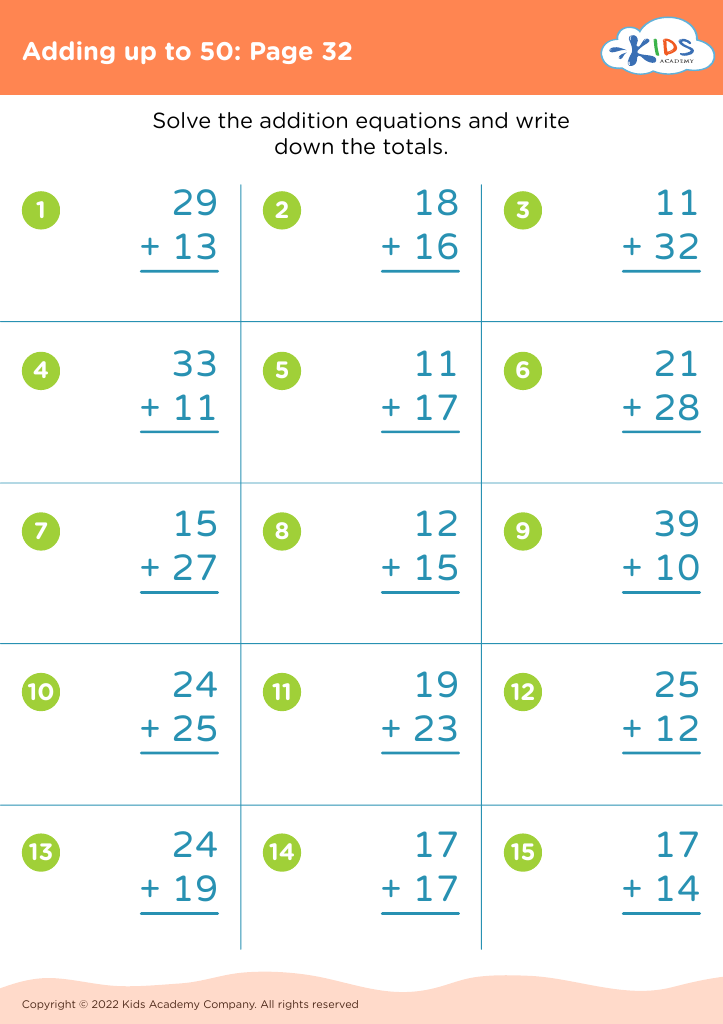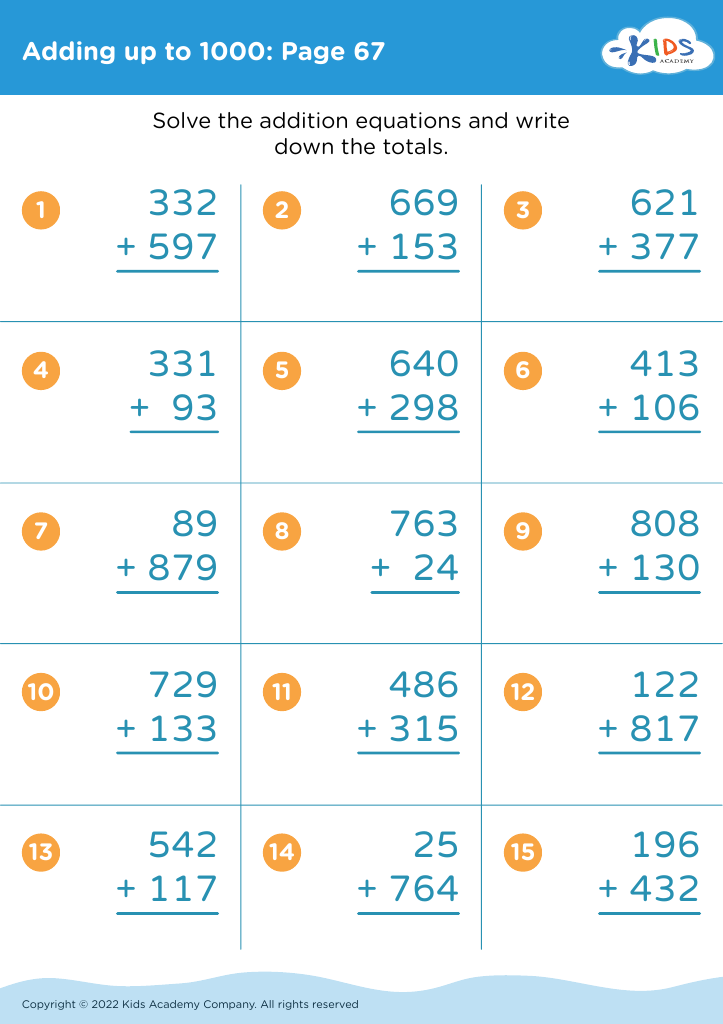Addition Worksheets for Ages 6-7 - Page 36
842 filtered results
-
From - To
Addition worksheets tailored specifically for ages 6-7 are a critical tool in the fundamental development of mathematical skills among young learners. At this pivotal age, children are expanding their cognitive abilities rapidly, and the introduction of addition through engaging worksheets can significantly enhance their numerical understanding and fluency. These worksheets are designed with the developmental stages of 6- to 7-year-olds in mind, ensuring that the tasks are not only educational but also captivating and appropriately challenging.
One of the key reasons why addition worksheets for ages 6-7 are so useful is that they provide a structured approach to learning this essential mathematical operation. Through repetitive practice and incremental difficulty, children can solidify their understanding of addition, laying a strong foundation for more complex arithmetic in the future. Furthermore, these worksheets often incorporate colorful visuals and relatable scenarios, making the learning process enjoyable and relevant to the child's everyday experiences.
Moreover, addition worksheets for this age group support the development of problem-solving skills and encourage independent learning. As children navigate through the exercises, they learn to identify patterns, apply logic, and develop strategies for solving problems, which are crucial skills both inside and outside the classroom.
In conclusion, addition worksheets for ages 6-7 are invaluable resources that offer a balanced mix of education and engagement, fostering a positive attitude towards mathematics and equipping young learners with the skills they need for academic success.














